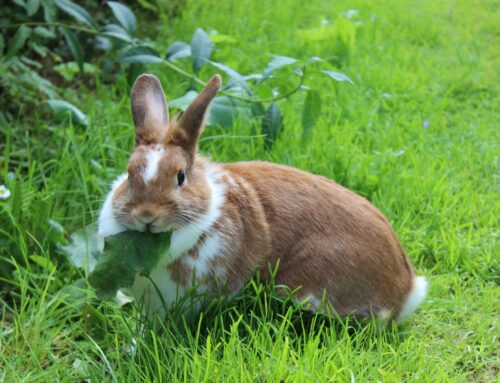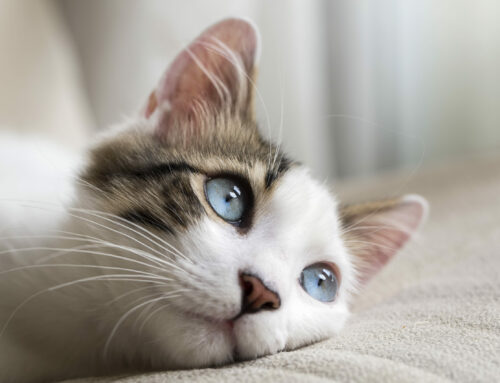Pancreatitis is a condition that isn’t well known among animal owners – however, it is one of the more common medical reasons for us to hospitalise a dog or a cat, and we always see a surge in cases around about Christmas time! In this blog, we’re going to look more closely at this horrible disease…
What is pancreatitis?
Pancreatitis simply means inflammation of the pancreas.
OK, but what’s a pancreas?
The pancreas is a gland in the abdomen, which the small intestine wraps around. It has two jobs; firstly, to make digestive enzymes (in the “exocrine pancreas”), and secondly to make insulin and control blood sugar levels (the “endocrine pancreas”).
So is pancreatitis like diabetes?
Not usually, although it can lead to diabetes if the endocrine pancreas is severely damaged.
Then what actually is it?
Pancreatitis occurs when the pancreas releases digestive juices internally, instead of pumping them into the gut. Instead of digesting the animal’s food, they start to digest the pancreas itself. Unfortunately, the more cells are damaged, the more digestive juices are released, so the disease can rapidly spiral out of control.
How does that affect a dog?
The most common symptoms in dogs are:
● Loss of appetite (in 91% of cases)
● Throwing up (90%)
● Weakness and lethargy (79%)
● Pain in the belly (58%). This is often visible as a “praying position” with the hindquarters up but the head and shoulders down, as they try to reduce the pressure on the inflamed organ.
● Dehydration and signs of shock (pale, sticky gums, high heart rate) (46%)
● Diarrhoea (33%)
Dogs can also get chronic pancreatitis which is much milder and grumbles on for weeks or more, but it is less common than the acute form described above.
What about a cat?
In cats, the condition is much more subtle, and the majority of cases are of the chronic, ongoing and long-lasting form:
● Loss of appetite (87%)
● Tiredness (81%)
● Dehydration (54%)
● Weight loss (47%)
Some cats actually show no symptoms at all for months – in fact, one study suggested that nearly half of all apparently healthy cats had mild chronic pancreatitis! However, eventually the situation reaches a head when the cat stops eating – and only then do we realise how severely ill they are.
Why is it so common around Christmas time?
Although there are a wide range of possible causes of the condition (abdominal trauma, low blood pressure, some medications, some infections), the most common cause in dogs is eating something really fatty – like the scraps and treats we love to give our pets at Christmas! In cats, the underlying cause is less well understood, but a fatty meal seems to be a common trigger, suddenly and dramatically worsening any existing chronic pancreatitis.
How do you know if a dog or a cat has it?
There is a simple blood test we can do in practice which is really sensitive – it’s called Pancreatic Specific Lipase, and there’s a dog and a cat version of the test (cPLI and fPLI, respectively). This chemical (pancreatic lipase) should, as the name suggests, always be in the pancreas. If the pancreas is damaged, however, the lipase can leak into the bloodstream, and is picked up by the test kit. We can do this in a few minutes and confirm the diagnosis in the vast majority of cases.
Occasionally, the clinical picture is more complicated, or the result is unexpected, and in these cases we can also send blood away for a slightly more sophisticated version of the test – but usually if the symptoms match and the initial result is positive, it’ll be pancreatitis.
What’s the treatment?
Intensive care nursing, primarily, with intravenous fluid drips and strong pain relief. It’s also important to rest the pancreas until vomiting stops as even the sight or smell of food can trigger the release of digestive juices! Once the initial crisis is over, it’s very important that they start to eat again. Cats especially are often reluctant to start eating again, and sometimes need feeding tubes until they feel up to solid food again.
Affected animals often have to stay with us for several days, or even weeks, until they are well enough to go home. Once home, they will usually need to live on a special low-fat diet, because once a dog or a cat has had an episode of pancreatitis, they are at a significantly increased risk of having another.
If you think your pet may have pancreatitis, call us so one of our vets can check them out.



